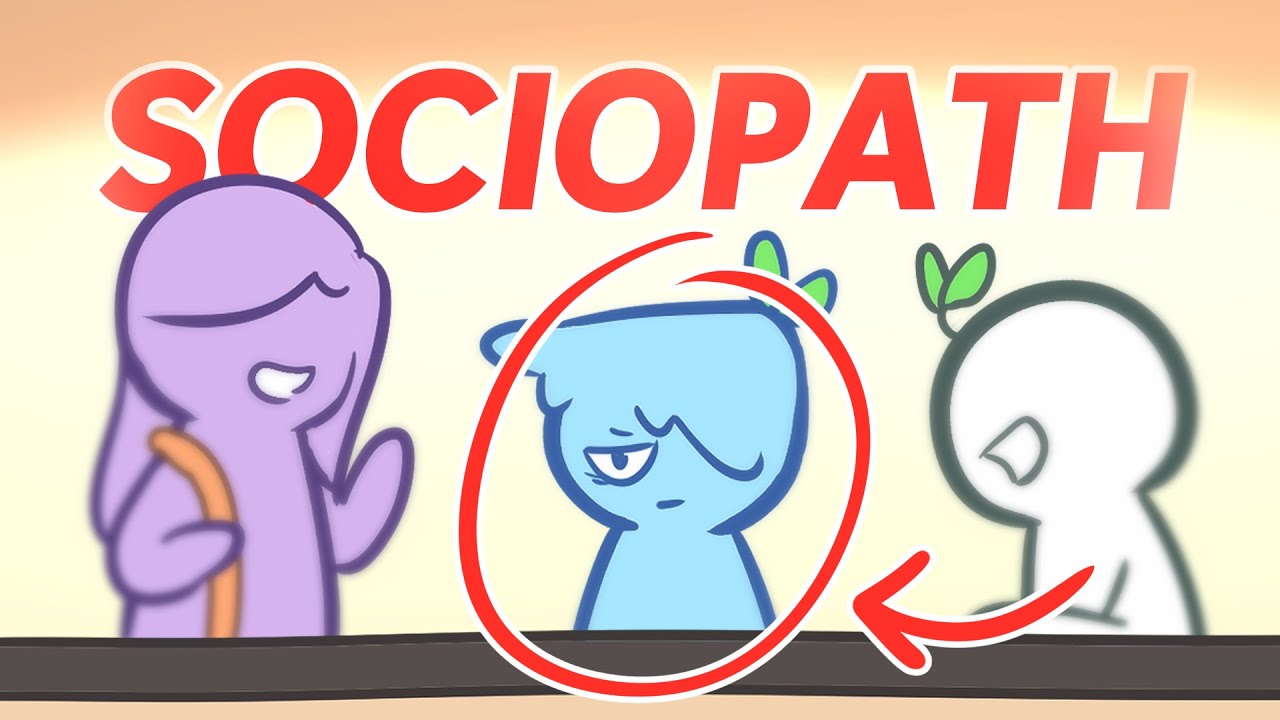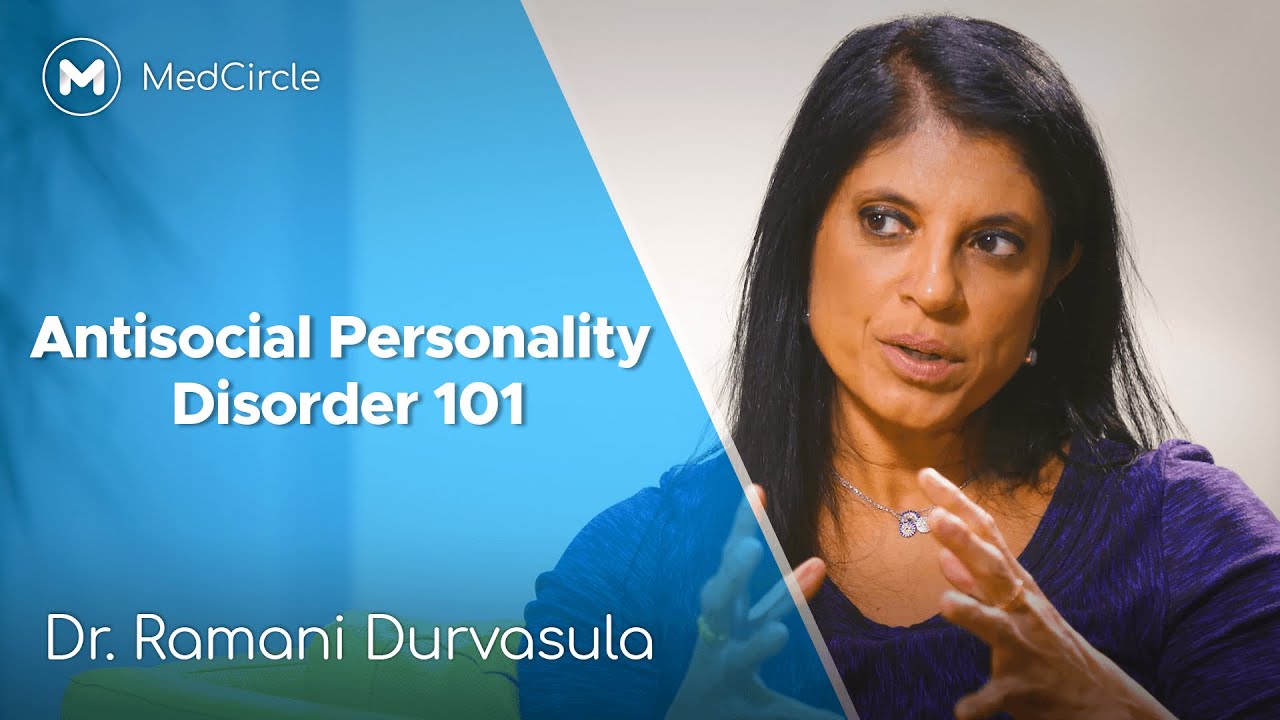Psychopaths Vs Sociopaths - What Are The Differences Between The Two?
People may have called someone else a "psychopath" or a "sociopath" before. But what exactly do these words mean? Most experts agree that psychopaths vs sociopaths have a lot in common.
Author:Daniel JamesReviewer:Karan EmeryJan 31, 202374 Shares73.9K Views

Sociopath and psychopath are probably words you've heard before, but what do they mean? Most experts agree that psychopaths vs sociopathshave a lot in common. People like this don't know what's right and wrong on the inside
They also don't seem to be able to understand or feel what someone else is going through. But there are a few things that are different.
People often use the words "psychopath" and "sociopath" interchangeably to describe someone who is pathologically prone to criminal or violent behavior and doesn't care about the feelings or interests of others or feels remorse or guilt for his actions.
What Is Antisocial Personality Disorder?
Mentalhealth.gov says that antisocial personality disorder is a mental illness in which a person has a pattern of taking advantage of or breaking the rights of other people. A person with an antisocial personality disorder might or might not have a criminal past. Symptoms may include:
- breaking the law often
- using their ability to be witty and charming to manipulate other people's emotions and use flattery
- not caring about their own or other people's safety
- being arrogant or angry a lot
- stealing, lying, and fighting a lot
- making excuses for their actions, and not showing remorse or guilt for their actions
What Is A Psychopath?

What is Psychopathy?
Even though the DSM-5 doesn't list psychopathy as an official diagnosis, psychologists still use the word to describe people with high levels of emotionlessness or callousness, as well as impulsivity or developmental antisocial traits like destructive or aggressive behavior.
Psychopathy usually starts to show up in early childhood and affects all parts of a person's life, including their relationships with family and friends, at school, and at work. A 2021 study in the journal Frontiers of Psychology[1] found that psychopathy affects about 1.2% of adults.
People with psychopathy tend to act in antisocial ways, like not caring about other people's feelings or well-being. This can hurt their personal and professional relationships as they struggle to connect with and trust the world around them.
What Is A Sociopath?

7 Signs Someone Is A Sociopath
Sociopath and psychopath are both terms for someone with antisocial personality disorder (ASPD).
The most recent edition of the "Diagnostic and Statistical Manual of Mental Disorders" (DSM-5) that mental health professionals use to diagnose mental health conditions describes ASPD as a consistent disregard for rules and social norms and repeated violations of other people's rights.
People with the condition might seem charming and charismatic at first, at least on the surface, but they usually have trouble understanding how other people feel.
The first time experts used the word "sociopathy" was in the 1930s. It wasn't easy to mix up with "psychosis," unlike "psychopathy." The prefix also reflected a widely held belief that sociopathy is caused by things in a person's social and environmental environment.
Before ASPD was added to the third edition of the DSM in 1980, many researchers used sociopathy and psychopathy interchangeably.
Similarities Between Psychopaths And Sociopaths
Sociopaths and psychopaths are not very good people. Most people who come into contact with them won't be better off emotionally, physically, or financially because of it. Sociopaths and psychopaths often have the following traits in common:
- Deception, or being willing to lie or hide the truth in order to get what they want.
- Manipulation is the tendency to "bend" facts and appearances to get other people to do things.
- Irresponsibility. Many sociopaths and psychopaths can't or don't always do their jobs or take care of their families. They may have let people down in the past.
- Not feeling guilty or sorry. They are not sorry for what they have done.
- Not following rules and laws. They might think they are "above the law" and act as if rules, guidelines, and laws don't apply to them.
- Aggressiveness. Sociopaths and psychopaths aren't always violent or aggressive, but they tend to be, and they may act violently in response to what they see as a slight.
- Close to being unable to form emotional bonds. Most of their relationships are transactional, and they don't really care about each other as people.
Almost all people sometimes lie, trick others, get violent, or don't do what they're supposed to. The Diagnostic and Statistical Manual of Mental Disorders, Fifth Edition (DSM-5) says that for an adult to be diagnosed with antisocial personality disorder, he or she must meet the following criteria:
Since age 15, a pattern of not caring about or breaking the rights of others, as shown by three or more of the following:
- Failure to follow social norms about how to act legally
- Deception, telling lies over and over, using fake names, or tricking other people for fun or money.
- Impulsiveness or not making plans
- Irritation or recklessness, often leads to fights or attacks.
- Not caring about your safety or the safety of others
- Lack of responsibility over and over
- Having no regret or not caring that you hurt or mistreated someone
Psychopaths Vs Sociopaths Differences

Sociopathy vs Psychopathy - What's The Difference?
Social Relationships
Sociopaths and psychopaths can both form relationships with other people. Psychopaths have brains that make it hard for them to care about other people.
They value relationships that help them, but they don't feel bad about using close friends and family. Psychopaths can be very charming, but it's all an act because they don't really care about you.
Sociopaths can usually feel empathy and guilt, but it's not strong enough to stop their impulsive and unpredictable behavior from taking over. But, at least with the people they get close to, their relationships can be "normal."
When they hurt the people around them, psychopaths can be very manipulative and harmful. Unlike sociopaths, they can be almost obsessively organized and seem normal in their social relationships, often forming symbiotic or parasitic relationships.
Career
Psychopaths usually have good jobs and try to get people to like and trust them. This is because they understand and can imitate human social emotions very well, even though they can't feel them themselves. This makes them great at using people's feelings to get what they want.
Sociopaths often have trouble keeping a job and a home. Sociopaths usually live outside of society.
Violent Tendencies
Even though people with antisocial personality disorder tend to act on impulse, psychopaths usually plan their crimes very carefully. Their crimes can go on for a long time without being found out.
Most psychopaths don't commit violent crimes. Instead, they take advantage of the people around them without breaking the law or committing white-collar crimes like fraud.
Most of the time, a sociopath's acts of violence are random and not planned. Also, they usually leave more clues. Sociopaths and psychopaths both do bad things because they want money or to get even.
But psychopaths don't feel bad about their actions because they can't understand how other people feel. Psychopaths make up a large number of serial killers.
Diagnosing Sociopathy And Psychopathy

What's the Difference Between Psychopaths and Sociopaths?
Even though psychopathy and sociopathy are not official mental health diagnoses, a healthcare provider will be able to tell by a person's pattern of behavior that they have these traits.
The DSM-5 is used by people who work in mental health to do this. It explains each mental illness, such as antisocial personality disorder.
When children and teens show early signs of antisocial personality disorder, they are often first diagnosed with conduct disorder, which is a pattern of breaking the rights and rules of others. Some behaviors are:
- Lying and stealing
- Aggression against people and animals
- Destruction of property
- Serious violation of rules
But not every child with a behavior problem will grow up to have an antisocial personality disorder.
Treatment Of Sociopathy And Psychopathy
People with these traits may benefit from seeing a therapist. Some medications can help improve some of the symptoms of antisocial personality disorder in some cases. But it is often hard to help sociopaths and psychopaths. The main reason for this is that they don't think there is anything wrong with them.
Psychotherapy
People who are usually called sociopaths or psychopaths have a hard time and don't do well in psychotherapy. This is mostly because they don't see a need to change their behavior and don't have other social skills.
Sometimes therapy can help people change the way they act. Psychotherapy, on the other hand, might be more helpful if it starts before a person with psychopathic tendencies turns 18.
Medication
There is no drug that treats sociopathy or psychopathy directly. But drugs that were made to treat other problems, like attention deficit hyperactivity disorder (ADHD) and mood disorders, can sometimes be used to treat symptoms that come with these problems. Sociopathy and psychopathy can be treated with:
- Psychostimulantsare medicines that help treat behaviors like hyperactivity and impulsivity. They have also been shown to make kids and young adults with ADHD less aggressive. Concerta (methylphenidate) and Adderall are two examples (dextroamphetamine).
- Antipsychotics: Drugs like Risperdal (risperidone), which are in this category, are often used to treat bipolar disorder and schizophrenia. They can also make people less aggressive.
- Mood stabilizers: These drugs are often given to people with bipolar disorder, but they can also sometimes help people with psychopathy control their anger and outbursts. Eskalith (lithium) and Depakote are two examples (Divalproex).
People Also Ask
Are There Any Normal Psychopaths?
Even though most serial killers are psychopaths, most psychopaths are not also serial killers. About 1% of the population are psychopaths, and they can be useful members of society. Because they don't feel things like worry and fear, they can stay calm in scary situations.
Can A Sociopath Feel Emotions?
They can't understand how other people feel because the idea is foreign to them. They don't care, but they also can't understand how other people feel. Sociopaths can be dangerous because they have no conscience and can't feel bad about what they've done.
What Is The Difference Between Psychopathy And Sociopathy?
Sociopaths have a conscience, but it's not very strong, and they'll often find a way to make something right that they know is wrong. Psychopaths, on the other hand, think that what they do is right and don't feel bad about hurting other people.
Conclusion
People often don't know the difference between the words "sociopath" vs "psychopath." Both terms are used to describe people with antisocial personality disorder, but psychopathy and sociopathy have some different characteristics.
Also, in the past, there has been some confusion between the two terms and how the situations they describe have been seen. Sociopathy is not a clinical term, but people in the general public often use it. On the other hand, "psychopathy" is a part of ASPD.

Daniel James
Author
Daniel James is a distinguished gerontologist, author, and professional coach known for his expertise in health and aging.
With degrees from Georgia Tech and UCLA, including a diploma in gerontology from the University of Boston, Daniel brings over 15 years of experience to his work.
His credentials also include a Professional Coaching Certification, enhancing his credibility in personal development and well-being.
In his free time, Daniel is an avid runner and tennis player, passionate about fitness, wellness, and staying active.
His commitment to improving lives through health education and coaching reflects his passion and dedication in both professional and personal endeavors.

Karan Emery
Reviewer
Karan Emery, an accomplished researcher and leader in health sciences, biotechnology, and pharmaceuticals, brings over two decades of experience to the table. Holding a Ph.D. in Pharmaceutical Sciences from Stanford University, Karan's credentials underscore her authority in the field.
With a track record of groundbreaking research and numerous peer-reviewed publications in prestigious journals, Karan's expertise is widely recognized in the scientific community.
Her writing style is characterized by its clarity and meticulous attention to detail, making complex scientific concepts accessible to a broad audience. Apart from her professional endeavors, Karan enjoys cooking, learning about different cultures and languages, watching documentaries, and visiting historical landmarks.
Committed to advancing knowledge and improving health outcomes, Karan Emery continues to make significant contributions to the fields of health, biotechnology, and pharmaceuticals.
Latest Articles
Popular Articles
